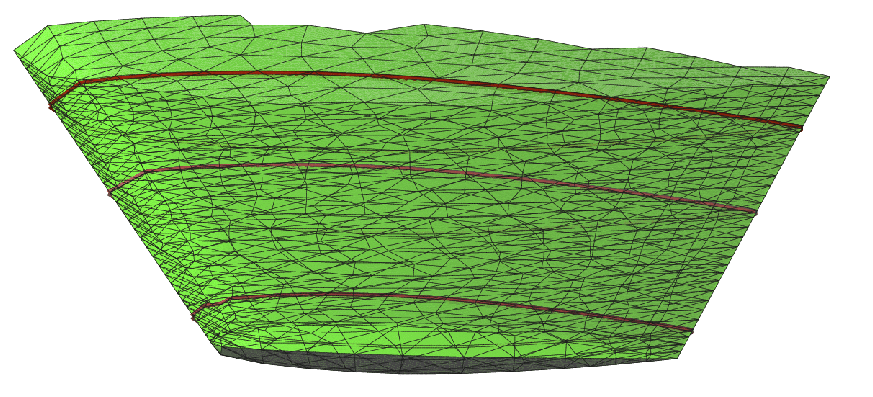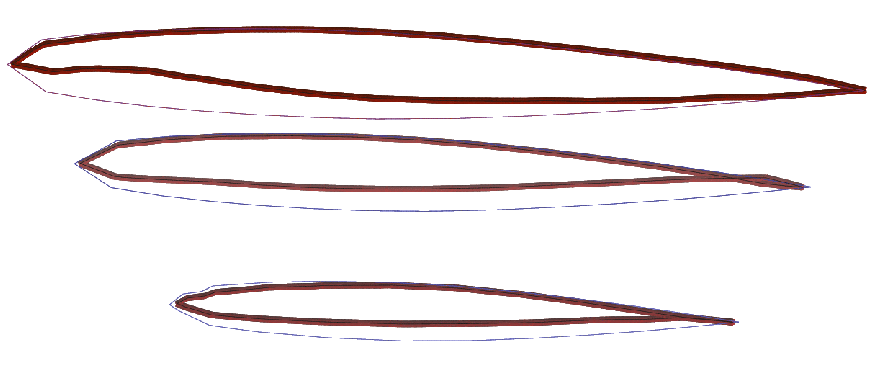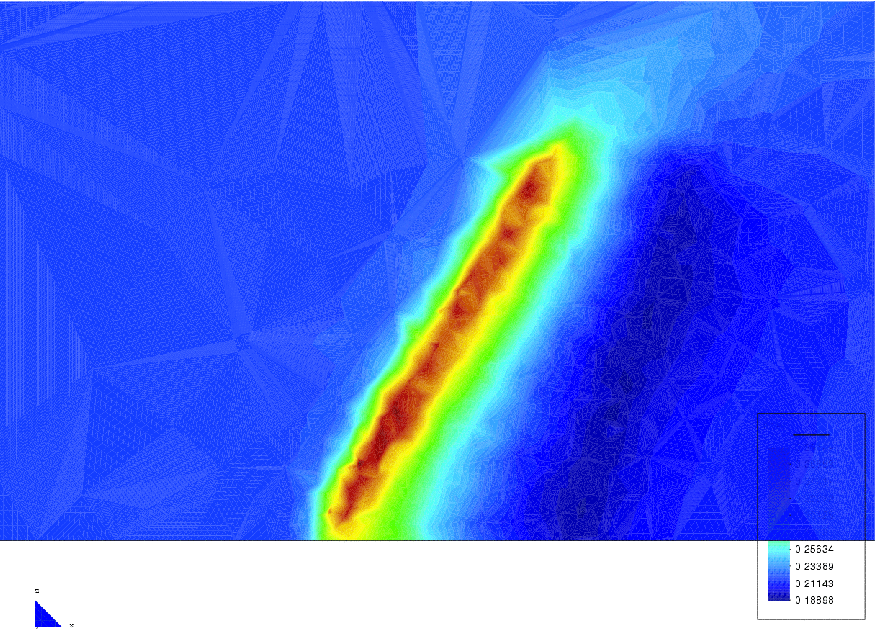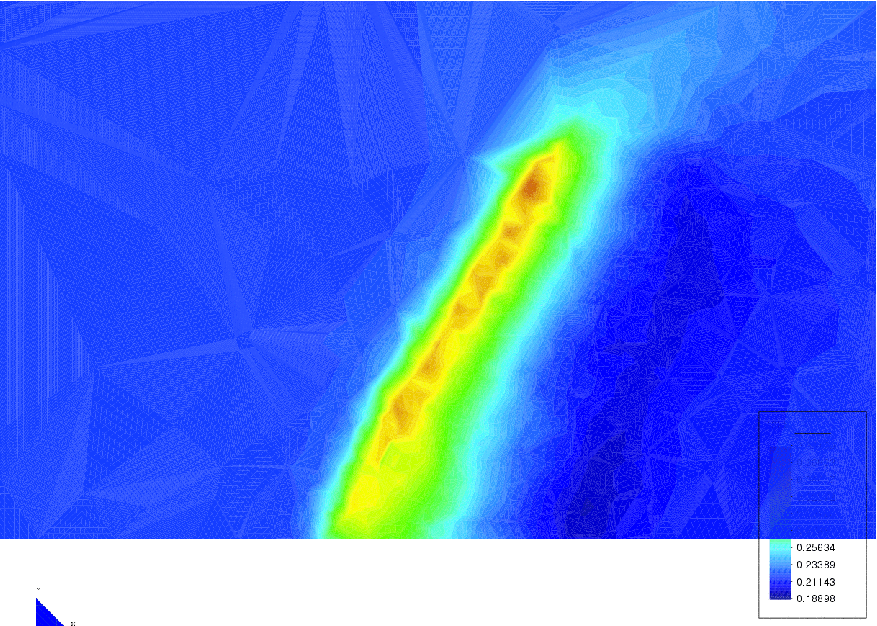POD-based Scheme in Sonic Boom Optimization
of a Supersonic Aircraft
Authors' e-mails: of a Supersonic Aircraft
Mariano.Vazquez@sophia.inria.fr
Alain.Dervieux@sophia.inria.fr
koobus@darboux.math.univ-montp2.fr
This web page is no more than a brief summary of the project. For the complete sources, please refer to the "Up-to-date publication's list" section and download the papers available, here.
This research is part of the project:
under way in INRIA - Sophia Antipolis, France.
The results shown here are preliminary ones.
Research sketch:
POD (Proper Orthogonal Decomposition) applied to sonic boom optimization
This part of the project is currently on the very first steps. The idea is to use a POD basis generated in combination with an agglomeration technique. The successive agglomeration of the surface triangles is used to construct a hierarchy of meshes, in a multigrid style. The coarsest one gives the bricks for building the POD basis. For each of the members of the coarsest level, we introduce a surface perturbation using the control variable. This perturbation is then interpolated up to the finest level, where the flow can be computed. The set of flow computations so obtained are used to construct the POD basis. Once the basis is set, now any surface modification through the control variable (i.e. the transpired perturbation) is projected on the coarsest level perturbation basis and consequently the resulting flow can be computed as a linear combination of the flow field obtained for each of the elements of the basis.
Results:
These results are the first results we obtained for the sonic boom optimization of an ONERA M6 wing, using a very coarse discretization.
 |
 |
Figure 1. ONERA M6 wing. Left, original wing showing the cross-sectional cuts. Right,
the resulting optimized airfoils compared with the original ones.
 |
 |
Figure 2. ONERA M6 wing. Pressure contours on a plane below the wing. Left, original wing. Right,
POD based optimized wing.
Mariano Vázquez is the web page's owner.